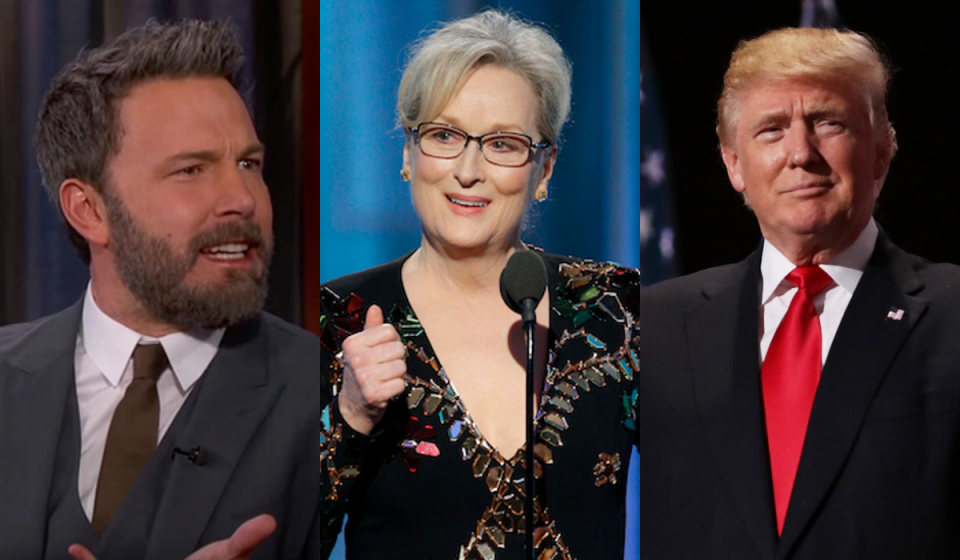Ben Affleck brilliantly defends Meryl Streep against Trump's 'overrated' comment

Ben Affleck has come out in defence of Meryl Streep, following her stunning Golden Globes speech, in which the iconic actress took on President-elect Donald Trump.
“Disrespect invites disrespect, violence incites violence. When the powerful use their position to bully others, we all lose,” Streep said on Sunday night, after calling out Trump’s mocking of a disabled journalist in late 2015.
– Why Rogue One is the perfect Star Wars prequel
– Blade Runner sequel rumoured to bring back character with CGI
– Michael Keaton reveals why he quit playing Batman
In response the speech, the man who will be the United States’ commander in chief as of 20 January tweeted, calling the three-time Oscar-winner “one of the most over-rated [sic] actresses in Hollywood.”
He also denied that he mocked the reporter in question.
Speaking on Jimmy Kimmel Live, Oscar-winner Affleck reacted to Trump’s claims, saying: “If there’s one thing truly in the world that we know is not true, it’s that Meryl Streep is overrated.”
Host Kimmel suggested ‘overrated’ might be the “nicest insult” Trump is capable of, to which the 44-year-old actor replied: “I guess, but pick a better shot than the person whose photograph actually accompanies ‘Great Actress’ in the encyclopedia.”
Since the furor, which ended up overshadowing the awards show itself, an interview conducted in 2015 has been found in which Trump said Streep was an actress he loved, adding: “Meryl Streep is excellent; she’s a fine person, too.”
As you would expected Streep has been celebrated and vilified for her comments, made while accepting the Cecil B. Demille lifetime achievement award.
In her speech, she said: “It was that moment when the person asking to sit in the most respected seat in our country imitated a disabled reporter, someone he outranked in privilege and power and the capacity to fight back.
“It kind of broke my heart when I saw it and I still can’t get it out my head because it wasn’t in a movie. It was real life. And this instinct to humiliate when it’s modeled by someone in the public platform, by someone powerful, it filters down into everybody’s life because it kind of gives permission for other people to do the same thing.”

 Yahoo Movies
Yahoo Movies 
